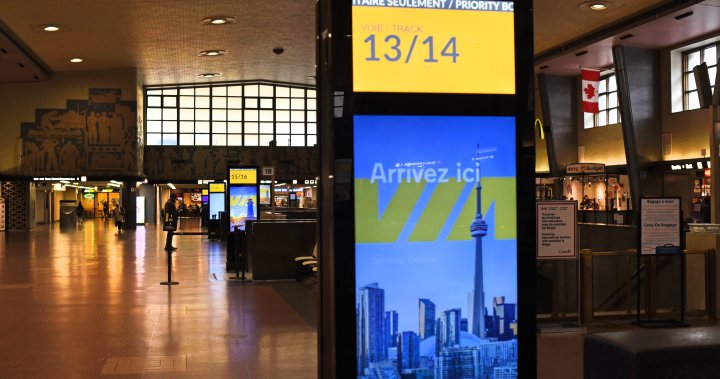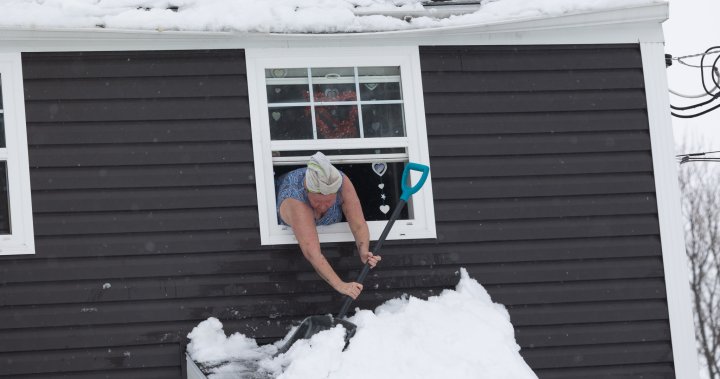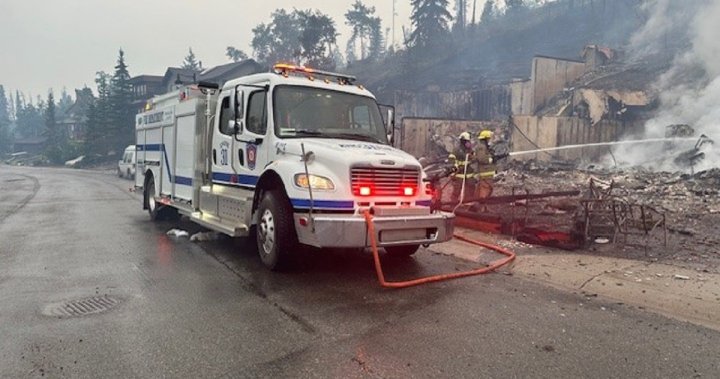Via Rail handed out millions of dollars in bonuses to executives and employees, amid frequent travel delays, ongoing financial troubles, and increased government subsidies, newly released documents show.
A report this month from the Crown Corporation found 40 per cent of its trains were late in 2023, while its operating losses increased year-over-year.
Via Rail doled out $11.4 million in bonuses during the 2023-2024 fiscal year, according to documents tabled in Parliament. Eleven executives received a total of $1,158,156.15 in bonuses, which works out to an average of $105,286.92 per person.

Meanwhile, another $10.2 million in bonuses were paid to 748 employees described in the documents as “below the executive level (or equivalent.)”
Via says, like many corporations, it offers incentives to non-unionized employees based on individual and company performance.
Breaking news from Canada and around the world
sent to your email, as it happens.
“2023 bonuses were based on several elements linked to financial performance, including Via Rail’s revenues, which increased significantly last year reflecting our increase in ridership,” said Via in a statement to Global News Tuesday.
More than four million passengers boarded Via trains in 2023, a 25 per cent bump from the previous year.
The increased demand helped drive up profits 29 per cent to $430.7 million. But Via’s operating losses grew eight per cent year-to-year to $381.8 million, as the company continues to rely on government funding.
The Crown corporation received $773 million in subsidies in 2023, which represents a 15 per cent increase from 2022. It has not reached a full-year profit since 2017.
The bonus figures were released Monday in response to an order paper question by Conservative MP Andrew Scheer submitted on April 9.
The documents were tabled less than two weeks after Via released its annual report, which found 59 per cent of its trains arrived “on time” — a two per cent improvement from 2022.
But the trains were less reliable than in 2020 and 2021, when “on-time” rates hovered around 70 per cent.
Via blames travel delays on the fact it only owns three per cent of the tracks its trains use. The rest are owned by private railway companies like CP Rail and CN Rail.
“As such, Via Rail’s on-time performance is mainly attributable to the fact that the corporation has limited control over the infrastructure, and Via Rail trains are forced to move aside to let freight trains pass,” said the Via spokesperson.
“On the Montreal-Ottawa line, where Via Rail owns and manages the tracks, Via Rail’s on time performance is 97 per cent.”
CEO Mario Péloquin, who took the top job at Via last June, said Ottawa should introduce a rail passenger bill of rights – similar to what exists for air travel – to improve service.
Péloquin also wants Canada to get in line with the U.S. where passenger trains take priority over freight trains.
It’s something NDP transport critic Taylor Bachrach has also called for in a private member’s bill aiming to do that.
“Canada lags behind much of the world when it comes to passenger rail,” said Bachrach in a statement last December.
“One of the key things holding us back is the fact that Canadian passenger trains have to frequently pull off and make way for freight trains, resulting in poor on-time performance,” he added.
— with files from the Canadian Press
© 2024 Global News, a division of Corus Entertainment Inc.





